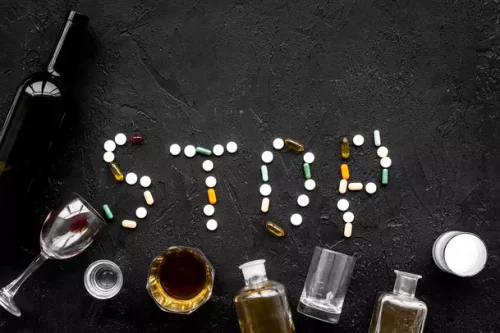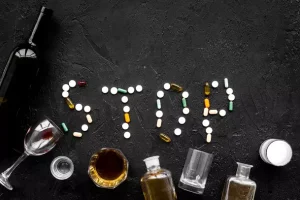Abstinence Violation Effect, Overcoming it
February 15, 2021 10:37 am Leave your thoughts
The result of this lackluster planning is that we recognize future disturbances, yet do nothing to truly resolve them. If we feel stress, anger or depression, we do not find healthy ways of confronting these feelings. We instead view these emotions as justifications of the negative cognition experienced under AVE. Our hopelessness and our instinctive desire to give up were spot-on, or else we would be happy all the time. But when we feel this way about ourselves, it somehow feels rational. Giving up on sobriety should never feel like a justified response to vulnerability.
- After a period of success in your recovery, you may think you can control your drug or alcohol use again.
- It is important to celebrate a successful recovery and abstinence period.
- Clinicians in relapse prevention programs and the field of clinical psychology as a whole point out that relapse occurs only after a long-term pattern of specific feelings, thoughts, and behavior.
- Mark’s goal is to provide a safe environment where distractions are minimized, and treatment is the primary focus for clients and staff alike.
- By providing comprehensive care, our treatment programs create a supportive environment in which our clients can build a solid foundation for lasting sobriety.
How Do You Prevent The Abstinence Violation Effect?

Learning healthy coping mechanisms can help you manage stress, cravings, and triggers without resorting to substance use. When people don’t have the proper tools to navigate the challenges of recovery, the AVE is more likely to occur, which can make it difficult to achieve long-term sobriety. He is a member of over a dozen professional medical associations and in his free time enjoys a number of different activities. Although now retired from racing, was a member of the International Motor Sports Association and Sports Car Club of America. Dr. Bishop is also a certified open water scuba diver, he enjoys fishing, traveling, and hunting. Cori’s key responsibilities include the abstinence violation effect refers to supervising financial operations, and daily financial reporting and account management.
Discover more from Realize Behavioral Health
Relapse prevention requires understanding what triggers substance abuse. As an example, a smoker may feel the urge to smoke when driving long distances or while drinking coffee when they normally enjoy smoking. Marlatt’s relapse prevention model also identifies certain factors called covert antecedents which don’t stand out as clearly. Examples include denial, rationalization of why it’s okay to use (i.e. to reduce stress), and/or urges and cravings. Sober living house As a result, it’s important that those in recovery internalize this difference and establish the proper mental and behavioral framework to avoid relapse and continue moving forward even if lapses occur. It includes thoughts and feelings like shame, guilt, anger, failure, depression, and recklessness as well as a return to addictive behaviors and drug use.
- Cori’s key responsibilities include supervising financial operations, and daily financial reporting and account management.
- Mark received a bachelor’s degree in Business Administration, with a minor in Economics from the University of Rhode Island.
- Does it mean a person must continue to drink or drug until the use returns to the initial level?
- It was written based on peer-reviewed medical research, reviewed by medical and/or clinical experts, and provides objective information on the disease and treatment of addiction (substance use disorders).
- In psychology, relapses are seen as the result of an accumulation of events, not a single event.
- If we can keep others from making the same mistakes, our experiences will serve a wonderful purpose.
How Common is Accidental Drug Overdose?
- AVE also involves cognitive dissonance, a distressing experience people go through when their internal thoughts, beliefs, actions, or identities are put in conflict with one another.
- The weight of this guilt often correlates to the amount of time spent in recovery leading up to the relapse.
- If you’re worried you might be heading towards a lapse or full-blown relapse, don’t struggle with this alone.
- Rather than only focusing on the end goal, celebrate small victories and all positive steps you’ve taken thus far.
With the right help, preparation, and support, you and your loved ones can still continue to build a long-lasting recovery from substance abuse. These patterns can be actively identified and corrected, helping participants avoid lapses before they occur and continue their recovery from substance use disorder. Otherwise, recovering individuals are likely to make the worst of a single mistake and accelerate back through the relapse process as a result. In other words, AVE describes https://ecosoberhouse.com/ the thoughts, feelings, and actions a person goes through after they make a mistake and have a drink or abuse a substance, despite trying to quit.
Normalize Relapse

In conclusion, the abstinence violation effect is a psychological effect that impacts those in recovery, as well as those who are focused on making more positive behavioral choices in their lives. When one returns to substance use after a period of abstinence, they experience a negative cognitive and affective reaction known as an abstinence violation effect in psychotherapy. An individual may experience uncontrollable, stable attributions and feelings of shame and guilt after relapsing as a result of AVE. John’s key responsibilities include maintaining the day-to-day operations from both a clinical and housing perspective.


Set realistic expectations for your recovery journey, understanding that progress may not always be linear. Rather than only focusing on the end goal, celebrate small victories and all positive steps you’ve taken thus far. Some examples of proven coping skills include practicing mindfulness, engaging in exercise, or pursuing activities that bring you fulfillment. Counteracting the effects of the AVE is necessary to support long-term recovery from addiction.
Categorised in: Sober living
This post was written by SPORTSERVE ADMIN